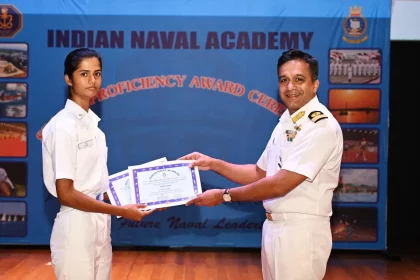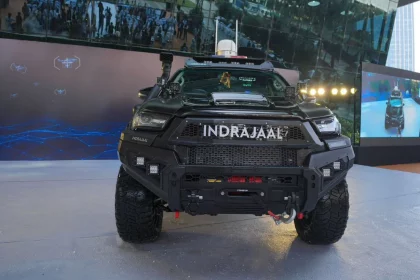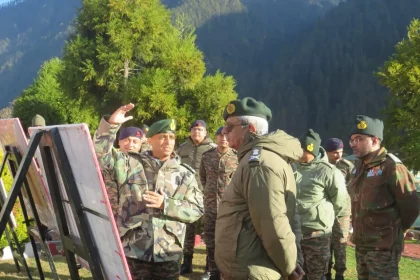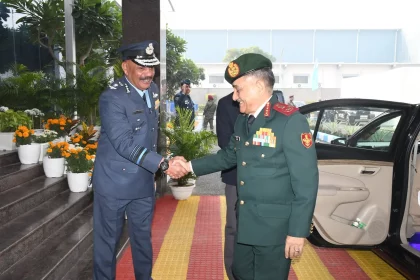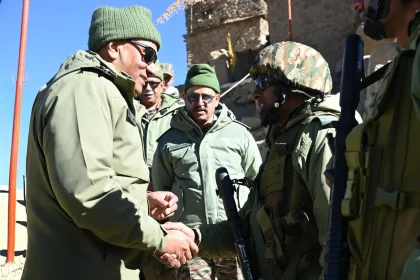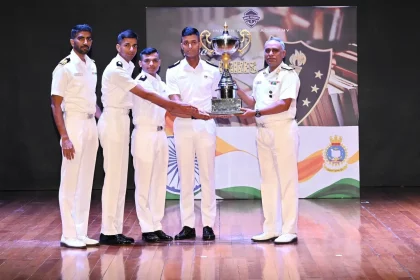Indian Naval Academy Honours Outstanding Trainees with Sports Proficiency Awards
INA Felicitates Trainees for Exceptional Skill, Discipline and Sporting Excellence.
India Unveils First Fully Mobile, AI-Enabled Anti-Drone Patrol Vehicle ‘Indrajaal Ranger’
India strengthens border security with a first-of-its-kind mobile anti-drone patrol platform.
Lt Gen Raghu Srinivasan Reviews Restoration Work on Lachen Axis in North Sikkim
BRO Chief Assesses Key Infrastructure Restoration After June Cloudburst.
CDS General Anil Chauhan Highlights IAF’s Modernisation and Joint Synergy at Western Air Command Conference
CDS stresses indigenous capability, jointness, and theatre command transition.
Lt Gen Pratik Sharma Reviews Security Preparedness in Dras–Kargil Forward Areas
Visit Reinforces Focus on High-Altitude Readiness Ahead of Harsh Winter.
Indian Naval Academy Honours Top Performers at Autumn Term 2025 Academic Awards Ceremony
Celebrating Academic Excellence and Innovation in Grooming India’s Next-Generation Naval Leaders.

